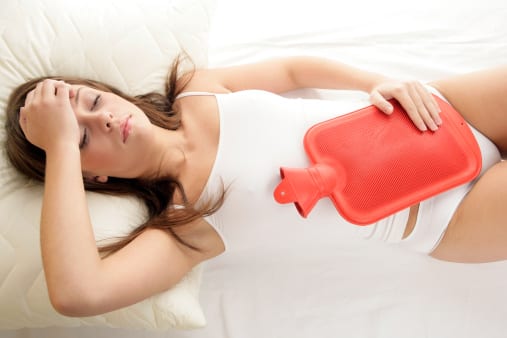There’s a lot still happening down there after pregnancy. Heavy bleeding and vaginal discharge can make you feel like you’ve been on a period for weeks.
But then your regular menstrual cycle picks back up. You could find that when it does return, it’s not the same as it was before you got pregnant. A heavy period after pregnancy isn’t something to be alarmed about, unless you’re experiencing an unsafe amount of blood in a short time span.
Post-pregnancy Bleeding
Right after you have your baby, you’ll experience heavy bleeding. This bleeding isn’t actually a period, but a combination of bleeding and vaginal discharge called lochia. You might find your lochia is so heavy that seems to gush from you at times, especially when you stand up. Lochia flow will slow down after two to four days and dry up by 10 days after delivery. Some women continue to spot for a few weeks after delivery.
Timeframe for Periods to Return
When your periods return depends partly on how you feed your baby. If you formula feed, your menstrual cycle will usually return within one to two months of delivery. If you breastfeed, your period might not return until you finish breastfeeding or stop breastfeeding exclusively. Because it’s difficult to tell when your periods will return, consider using a back-up method, like condoms, to prevent another pregnancy.
Changes to Your Cycle
Pregnancy changes your hormones, and some women find they never get the same periods back that they had before having a baby. You might find that your first period ofter pregnancy is unusually heavy or unusually light. A heavy first period after pregnancy usually isn’t anything to be concerned about as long as you’re not soaking pads in under an hour or showing signs of an infection or medical condition.
When to See Your Doctor
Sometimes bleeding after pregnancy isn’t lochia or a first, heavy period. It can be a sign of a serious medical condition, like postpartum hemorrhaging or a retained placenta. If you begin bleeding heavily and also experience severe abdominal pain, fever, chills or blood clots larger than golf balls, call your health care provider immediately. You may need medical care to stop the bleeding or to remove tissue that might still be present in your uterus.
How to Regulate Your Cycles
If your cycle changes after pregnancy, like a heavier flow, bothers you or interrupts your lifestyle, you can control it with hormonal birth control. Hormonal birth control will regulate your cycle and, in some cases, make your flow lighter and less painful. Some kinds of birth control allow you to have a period four times per year or once per year. Talk to your gynecologist about your concerns so you can choose the best kind of birth control for your particular cycle issues.





